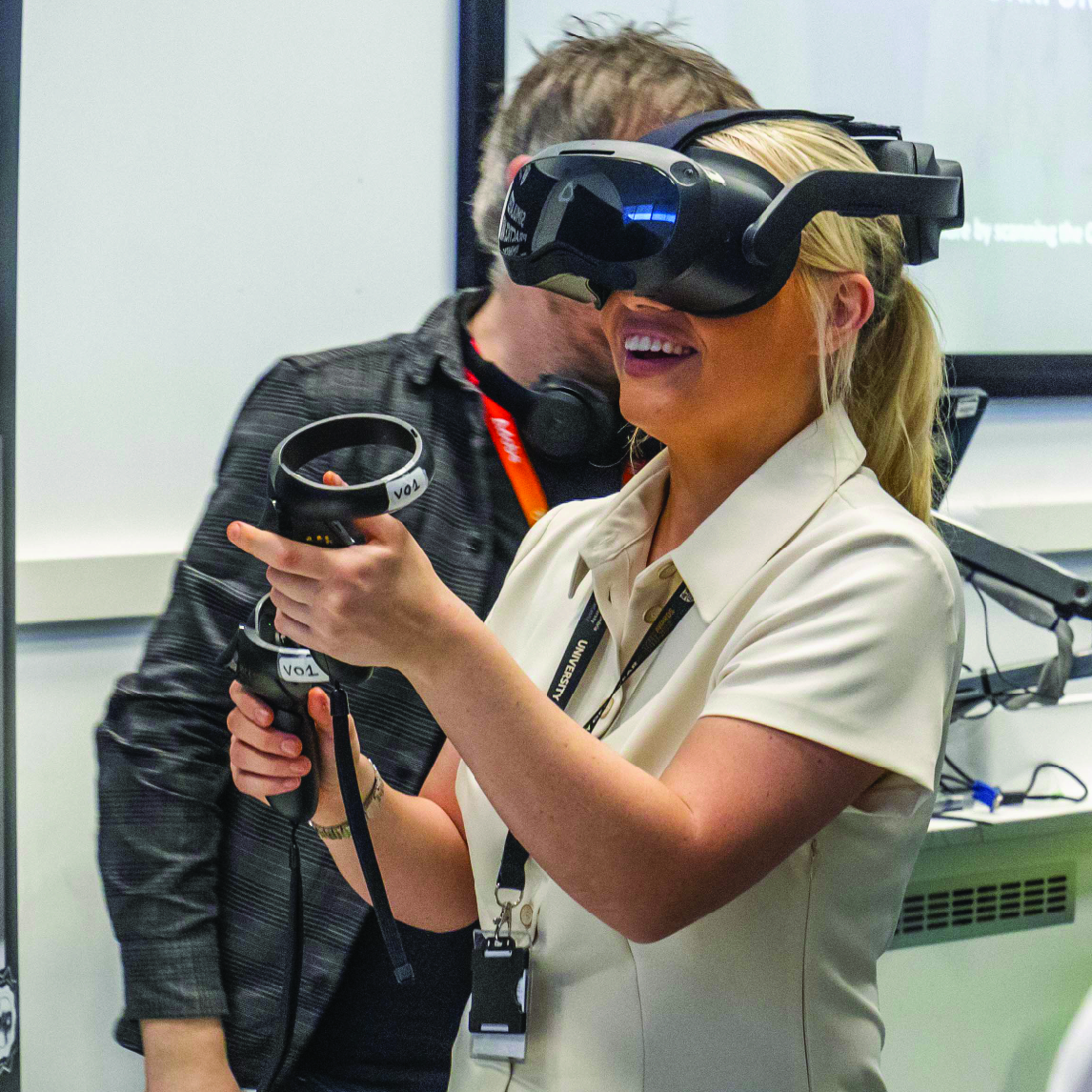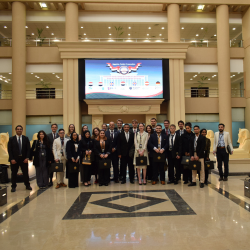-
Study
-
Quick Links
- Course Search
- Unlock Your Potential
- Still time to Apply
- Higher and Degree Apprenticeships
- Continuing Professional Development
- Still time to apply
-
Undergraduate
- Course Search
- Application Guides
- UCAS Exhibitions
- Foundation Years
- Fees and Funding
- School & College Outreach
- Information for Parents
-
Postgraduate
- Course Search
- Application Guide
- Postgraduate Research Degrees
- Flexible Learning
- Fees and Funding
- Change Direction
- Register your Interest
-
Student Life
- Students' Union
- The Hub - Student Blog
- Accommodation
- Northumbria Sport
- Support for Students
-
Experience Northumbria
- Open Days & Events
- Virtual Tours
- Campus Tours
- Life in Newcastle
-
-
International
International
Northumbria’s global footprint touches every continent across the world, through our global partnerships across 17 institutions in 10 countries, to our 277,000 strong alumni community and 150 recruitment partners – we prepare our students for the challenges of tomorrow. Discover more about how to join Northumbria’s global family or our partnerships.
View our Global Footprint-
Quick Links
- Course Search
- Undergraduate Study
- Postgraduate Study
- Information for Parents
- London Campus
- Northumbria Pathway
- Sign up for Information
-
International Students
- Information for Students
- International Events
- Application Guide
- Entry Requirements and Education Country Agents
- Global Offices
- English Requirements
- English Language Centre
- International student support
-
International Fees and Funding
- International Undergraduate Fees
- International Undergraduate Funding
- International Masters Fees
- International Masters Funding
- International Postgraduate Research Fees
- International Postgraduate Research Funding
-
International Partners
- Agent and Representative Network
- Global Partnerships
- Global Community
-
International Mobility
- Information for Northumbria Students
- Information for Incoming Exchange Students
-
-
Business
Business
The world is changing faster than ever before. The future is there to be won by organisations who find ways to turn today's possibilities into tomorrows competitive edge. In a connected world, collaboration can be the key to success.
More on our Business Services -
Research
Research
Northumbria is a research-rich, business-focused, professional university with a global reputation for academic quality. We conduct ground-breaking research that is responsive to the science & technology, health & well being, economic and social and arts & cultural needs for the communities
Discover more about our Research -
About Us
-
About Northumbria
- Our Strategy
- Our Staff
- Place and Partnerships
- Leadership & Governance
- Academic Departments
- University Services
- History of Northumbria
- Contact us
- Online Shop
-
-
Alumni
Alumni
Northumbria University is renowned for the calibre of its business-ready graduates. Our alumni network has over 246,000 graduates based in 178 countries worldwide in a range of sectors, our alumni are making a real impact on the world.
Our Alumni - Work For Us
What will I learn on this module?
This Module encourages you to examine law in an historical, political, social, economic, and cultural context. You will examine how law intersects with diverse disciplines and can be used as a lens to explore and analyse approaches and themes.
How will I learn on this module?
You will have an opportunity to learn through a combination of large group supervised hub sessions, seminars, tutor guided independent learning and independent learning. The Module adopts a student enquiry approach and requires you to conduct research into themes and organise material for presentation.
Large Group Sessions
Rather than lectures, A Legal Lens: Seeing the Law differently uses large group sessions to introduce each theme and offers you an opportunity to independently and collaboratively research themes for presentation during seminars. Whole group sessions are supervised sessions in collaborative working spaces to enable you to work in groups or independently. A tutor will be on hand to assist and guide your research. These sessions require you to demonstrate your ability to locate and make effective use of source materials. You are expected to engage in independent and, at times, directed learning in consolidation of work done in preparation for, and during, seminars.
Small Group Sessions
The small group seminars cover a range of activities but focus on student presentations on your chosen themes. Through this you will learn how to effectively organize and communicate information orally.
Independent learning
This is an important aspect of the Module which encourages you to identify further reading and research to provide deep and broad knowledge and understanding of the chosen themes.
Assessment of learning
Your learning will be assessed at the end of the Module through a portfolio which includes two short oral presentations or an oral presentation and the portfolio journal. You are expected to complete the two presentations and the portfolio journal, but you can choose to be assessed by a portfolio that includes either 2 presentations or one presentation and the portfolio journal. The tasks in the large group sessions act as preparation for the work produced for the final assessment and you will receive formative feedback in large group sessions. Your oral presentations will be supported by a portfolio/reflective journal which you build throughout the Module.
How will I be supported academically on this module?
The University supports you in learning and research with an excellent library and teaching facilities, access to on-line legal databases and resources and appropriate software.
This Module is designed and managed by the Module Tutors who is responsible for guiding you in your engagement and learning. Relevant materials and instructions are accessible through the Module Blackboard site, maintained by the Module Tutors.
Extensive use is made of the Blackboard to facilitate discussions between you and the Module Tutors, to provide materials, make announcements and to highlight recent developments and relevant research materials.
You may contact the Module Tutors if you encounter any difficulties.
Academic support is available through formative feedback from tutors on your oral presentations and on summative assignments.
At programme level you will be supported by the Programme Leader who provides pastoral support throughout the academic year.
The Programme Administration and Student Liaison teams are responsible for the non-academic administration of the Module. They will contact you throughout the semester with details about the assignment and other relevant issues.
What will I be expected to read on this module?
All modules at Northumbria include a range of reading materials that students are expected to engage with. Online reading lists (provided after enrolment) give you access to your reading material for your modules. The Library works in partnership with your module tutors to ensure you have access to the material that you need.
What will I be expected to achieve?
Knowledge & Understanding:
• You will demonstrate a depth of knowledge on a specialist subject area and demonstrates an ability to synthesise relevant doctrinal, policy or theoretical standpoints within the context of the subject area.
Intellectual / Professional skills & abilities:
• You will be able to organise and communicate information orally or in writing and adjust the communication for the purpose of the audience.
Personal Values Attributes (Global / Cultural awareness, Ethics, Curiosity) (PVA):
• You will develop independent thinking skills and curiosity that challenges your own thinking as well as the thinking of others.
How will I be assessed?
Formative assessment
You will work in groups to give presentations on the different themes. You will deliver a minimum of two formative oral presentations on the chosen themes on which you will receive individual feedback from seminar tutors and peer feedback in the seminar group, based upon agreed assessment criteria.
Summative assessment
Your summative assessment will be a portfolio. The portfolio consists of two elements:
a) a 5-minute individual presentation and
b) a 5-minute individual presentation or
a reflective journal
This assignment aims to encourage a deep and critical approach to learning, developing an ability to think widely about the issues presented within the Module and to explore these in-line with directed and independent learning.
Assessment criteria will be provided to enable you to understand what is expected of you and how you will be judged on your performance.
Feedback is be given in accordance with the Law Schools’ Undergraduate Feedback policy currently in force. You will receive feedback on the formative assessment, as detailed above. Summative feedback will be available in written form and orally from Module tutors. In addition, there will opportunities for feedback to your questions in seminars.
Pre-requisite(s)
N/A
Co-requisite(s)
N/A
Module abstract
A Legal Lens: Seeing the Law differently encourages you to consider how the law intersects with other academic disciplines and brings a unique approach by exploring how using a ‘legal lens’ can be used in many contexts. You have an opportunity to research and discuss four areas, chosen at the start of the academic year by the tutors teaching the Module. The themes may include (but are not limited to): Law and the Visual; Law and Emotion; Law and Psychology; Law and Architecture; Law and Fashion; Law and Dissent; Law and Geography; Law and Popular Culture, Law and Theatre. By analysing and researching the intersection between law and other disciplines you will develop an insight into the rich and varied ways in which a law contributes to knowledge in diverse areas.
You will work independently, and in groups, to conduct directed and self-directed research including accurately identifying issue(s) which require further research for each theme. You will locate and critically evaluate accurate, current, and relevant information from a range of appropriate sources including primary legal sources. You will learn how to effectively organize and communicate information orally both individually and as part of a team.
The aim is to encourage you to consider the law in a wide context and begin to explore new areas that support and encourage you to research and develop new skills.
Course info
UCAS Code M102
Credits 20
Level of Study Undergraduate
Mode of Study 3 years Full Time or 4 years with a placement (sandwich)/study abroad
Department Northumbria Law School
Location City Campus, Northumbria University
City Newcastle
Start September 2025 or September 2026
All information is accurate at the time of sharing.
Full time Courses are primarily delivered via on-campus face to face learning but could include elements of online learning. Most courses run as planned and as promoted on our website and via our marketing materials, but if there are any substantial changes (as determined by the Competition and Markets Authority) to a course or there is the potential that course may be withdrawn, we will notify all affected applicants as soon as possible with advice and guidance regarding their options. It is also important to be aware that optional modules listed on course pages may be subject to change depending on uptake numbers each year.
Contact time is subject to increase or decrease in line with possible restrictions imposed by the government or the University in the interest of maintaining the health and safety and wellbeing of students, staff, and visitors if this is deemed necessary in future.
Useful Links
Find out about our distinctive approach at
www.northumbria.ac.uk/exp
Admissions Terms and Conditions
northumbria.ac.uk/terms
Fees and Funding
northumbria.ac.uk/fees
Admissions Policy
northumbria.ac.uk/adpolicy
Admissions Complaints Policy
northumbria.ac.uk/complaints









